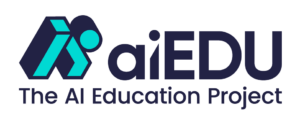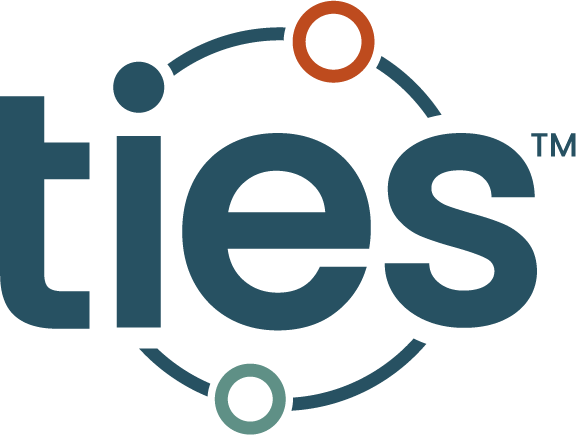Leaders of the STEM Learning Ecosystem in Minnesota were instrumental in collaboratively planning AI summits with the TIES and aiEdu.org team. In Emily Saed, Director of Minnesota’s STEM Learning Ecosystem, offered valuable insights into local context and statewide AI efforts. The partnerships and connections facilitated by Emily enabled the TIES and aiEdu team to strengthen and enhance existing initiatives.
With a focus on Indigenous populations, TIES, aiEDU.org and other AI leaders convened at the American Indian Resource Center (AIRC) in Bemidji, Minnesota, to discuss how emerging technologies can empower educators and help create pathways to the jobs of tomorrow.
“We want to make sure there’s always room at the table for everyone. This building is a resource for all—students, faculty, staff, and the community. Everyone is welcome here.” – Chrissy Downwind, American Indian Student Success and Bemidji State University
The September 19 AI in Education Summit opened with an intentional recognition of the American Indian Civil Rights Movement, the American Indian Resource Center as the AI Summit event site, and AIRC support of American Indian students, attendees were welcomed by Chrissy Downwind, Vice President for American Indian Student Success and Campus Diversity Officer, Bemidji State University, as she emphasized the importance of making “a space for everyone to be at the table.”
Summit attendees worked to understand the ‘why’ behind incorporating AI into learning systems and other parts of life, while also focusing on creating community around AI literacy.
“We need more guidance from both state and federal education departments on how to effectively integrate AI in a way that benefits both educators and students.” – Summit Participant.
From student engagement opportunities to workforce development and economic growth strategies, community leaders gathered to participate in panels, small group discussions and hands-on activities.
“You don’t need to have a highly technical understanding to engage critically with AI. Digital literacy is for everyone, and we need more informal learning opportunities in our schools and communities.” – Liz Walsh, Raspberry Pi Foundation
Northern Lights Collaborative for Computing Education co-lead a session with the Fond du Lac Ojibwe School and Hermantown Community Schools to incorporate the Ojibwe language and culture into computer science learning activities.
During the AI panel, full of regional and national experts, Janice Aanenson of Minnesota State IT Center of Excellence shared, “There is some work to be done around AI and we as educators need to help solve that. We can’t wait for somebody else to do it.”
Participants all agreed that the AI Summit achieve its goal to explore how AI can be leveraged to support student success, empower teachers, foster collaboration and creativity in the classroom, and lead to a more empowered workforce. Regardless of experience level, the Summit was designed to provide valuable insights, practical resources and open dialogue.
“You don’t need to have a highly technical understanding to engage critically with AI. Digital literacy is for everyone, and we need more informal learning opportunities in our schools and communities.” – Liz Walsh, Raspberry Pi Foundation
As AI continues to evolve and integrate into our educational systems, the need for collaborative platforms like AI summits becomes even more critical. Whether you’re an educator looking to understand how AI will impact your classroom, a policymaker grappling with regulatory challenges, or an innovator with ideas to share, these AI Summits are providing an invaluable opportunity to contribute to and learn from the collective wisdom of the field.
###
aiEDU.org
The AI Education Project is a 501(c)(3) non-profit that creates equitable learning experiences that excite and empower students everywhere with AI literacy. We believe that everyone – especially those who are likely to be disproportionately impacted by AI systems – should have access to the conceptual knowledge and skills they need to thrive as workers, creators, consumers, and citizens.
TIES | Teaching Institute for Excellence in STEM
The vision of a veteran educator, now a global organization, united partners to drive gains for learners, families, communities and the economy at large. TIES is dedicated to making STEM – a powerful force for economic mobility – accessible to everyone, especially underserved and underrepresented learners. TIES provides lead support to the STEM Learning Ecosystems Community of Practice as the backbone organization. TIES mission is to enhance education and employment outcomes, fostering a more preposterous and equitable society.
Minnesota STEM Ecosystem
The Minnesota STEM Ecosystem was established in 2023 and created through a cross-sector, cross-system collaboration of business, education, government, afterschool programs, museums, non-profit and community organizations, and policy leaders. Over the past year, we have embarked on a mission to close the STEM learning and workforce opportunity gap across Minnesota. Our goal is to create a dynamic and inclusive STEM Ecosystem that brings together the strengths and resources of diverse sectors to expand opportunities for all learners, particularly those from underserved and historically marginalized communities.



